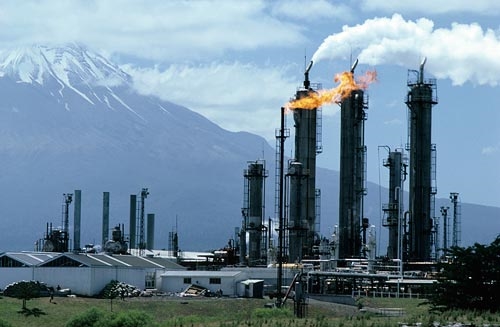Solar power generation is quickly becoming one of the most popular grid-independent power generation systems in the world. Every year, hundreds of New Zealand households choose to make the switch to a cleaner, greener form of electricity, installing solar panels onto the roofs of their homes and businesses.
There are as many reasons for choosing solar as there are people who choose it. But one of the biggest reasons is cost. Electricity is getting more and more expensive, and many people are tired of the figure on their utility bills growing larger and larger.
When cost is such a factor, one of the most common questions we get asked is this: just how long will these solar panels last? And how long before they have to be replaced?
How long do solar panels last?
Most well-made solar panels will have a warranty of 25 years or more. This might make you think this is the point at which they stop generating power. However, that isn’t quite the full story.
The 25-year warranty isn’t an actual product lifetime. After two and a half decades of operation, a solar panel will still produce energy, just at a lower rate.
Estimates on exactly how much less vary, but a 2012 study from the US-based National Renewable Energy Laboratory found that solar panels lose about 0.8% of their original efficiency every year. By this estimate, after 25 years, a solar panel will still be producing about 82.5% of the power it did when it first started.
This extreme longevity is one of the reasons why it’s important to install solar panels on sturdy structures. The panels often outlive the roofs they’re placed on.
It’s also important to consider the age of this study, which is a decade or more old at the time of writing. There have been significant developments in solar technology since then, with solar panels becoming sturdier, longer lasting and more efficient. Were this study repeated today, the efficiency drops could be even less significant.
Why do solar panels degrade?
Higher quality solar panels will last far longer than lower quality options, but you have to expect degradation over time.
A solar panel can degrade due to:
- Light-induced degradation, where the panels lose efficiency through extended exposure to light and the resulting degradation of the materials in the panel.
- Potential-induced degradation, where the panel has been built with components that use different voltages, causing voltage leaks and reducing the amount of power the panel can send to the inverter.
- Age-related degradation. Simple things like heavy rainfall, ice, snow and high temperatures can harden the silicon, corrode the frame, and contaminate the power cells. Hail, dust and sand can also cause microfractures in the surface of the panel, which can damage the seal and allow water to get inside.
How can you make solar panels last longer?
Some degradation for solar panels is unavoidable. Light-induced degradation is simply a part of a solar panel’s operation - but there are a few measures you can take to ensure that your panels last as long as possible, with as much efficiency as possible.
- Good quality components. High quality solar components last far longer than the cheaper alternatives, and it’s not just the panels themselves that matter. For maximum lifetime and to avoid potential-induced degradation, you must have wiring, inverters and batteries that are designed to work in tandem with your panels.
- Good quality installation. Even the toughest panels in the world will fail earlier than you’d like if they aren’t installed properly. Inappropriate installation of a solar power system or the installation of a solar power system on a roof that’s leaky or damaged are guaranteed to result in a lower lifetime for your panels.
- Regular maintenance and checkups. Regular cleaning of your panels is integral to maximum power generation, but it also gives you a chance to inspect your panels for damage. If you see cracks or fractures, it’s a priority to get these repaired or replaced. Want to avoid the damage in the first place? Make sure you trim back trees to avoid shade and falling branches, which can damage the panels.
When should you replace a solar panel?
As you can see, solar panels can last a very long time with proper care and maintenance. Chances are that you’ll only ever have to replace your solar panels once, maybe twice, in your lifetime.
That said, if you notice a consistent drop in your solar power generation efficiency that can’t be explained by the weather, then it may be time to replace your panels or expand your solar array to make up the difference.
If you do choose to replace an underperforming solar panel, you should aim to recycle it. The vast majority of the materials used in a solar panel are completely recyclable, including glass, plastic, aluminium, silicon and various metals. A big part of the appeal of solar is how green it is, and its recyclability means that, even at the end of its life, a solar panel can continue to keep the planet cleaner and greener for future generations.
Currently, New Zealand doesn’t have a huge demand for recycling solar panels, so it can be tough to find somewhere that will make the most of them. Our recommendation is to get in touch with our team - we’ll be able to point you in the right direction.
If you’re planning to replace a solar panel, expand your array, or just have questions about the correct way to look after your panels for maximum life expectancy, get in touch with the ZEN Energy team today for all the answers and guidance you’ll need.




